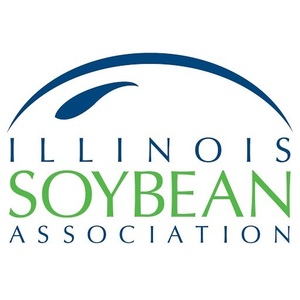ISG: Illinois Senate passes B20 legislation

April 4, 2022
BY Illinois Soybean Association
The Illinois Soybean Growers is celebrating the passage of the organization’s B20 legislation, sponsored by State Senator Patrick Joyce (D–Essex). The legislation passed with strong bipartisan support from every region of Illinois, and it will now move to the Illinois House of Representatives where State Representative Eva Dina Delgado (D–Chicago) will be the lead sponsor.
“This hard-won victory is the result of ISG’s tireless advocacy, and the support of sponsor Senator Patrick Joyce who is working to present a viable and immediate solution to combat climate change from carbon emissions in the transportation sector,” says ISA Chairman, Steve Pitstick. “This legislative initiative will transition the sales tax incentive from 10 percent biodiesel blends to 19 percent, which will not only significantly enhance the environmental benefits of biodiesel, but also lead to strengthened demand for this homegrown, renewable fuel by about 125 million gallons.”
Illinois’ commitment to the biodiesel industry has created over 7,500 clean energy jobs in Illinois and has generated $1.6 billion in household income to families across Illinois. In addition to these tremendous boons to Illinois’ agricultural economy, biodiesel also offers immense health and environmental benefits. Biodiesel reduces lifecycle greenhouse gas emissions by up to 86%, and once the bill is fully implemented it is expected to reduce GHG emissions by nearly 200 thousand tons.
Additionally, biodiesel is a reliable, high-performance fuel that works in any diesel engine without modifications. Several transit fleet leaders in Illinois have already adopted blends of 20% biodiesel, including: The Chicago Park District, the Forest Preserve District of DuPage County, the Cook-Illinois Corporation, and numerous municipality fleets in the Chicagoland area.
“This is a proud day for the Illinois Soybean Growers, and the 43,000 soybean producers in our state,” says Pitstick. “Illinois farmers lead the nation in soybean production, and our agricultural community is the largest economic driver in the state. This critical legislation will further fuel Illinois’ economy, will improve our environment, and will keep the Illinois soybean market firing on all cylinders.”
Advertisement
Advertisement
Related Stories
Broco Energy on July 17 announced a new partnership with the Massachusetts Port Authority (Massport) to deliver and transition Massport's fuel tanks to renewable diesel across its various facilities.
Shell Aviation, Accenture, and Amex GBT on July 10 announced Avelia is in the process of evolving to an industry solution with independent data hosting and a multi-supplier model helping users access the GHG benefits of SAF.
The U.S EPA on July 17 released data showing more than 1.9 billion RINs were generated under the RFS during June, down 11% when compared to the same month of last year. Total RIN generation for the first half of 2025 reached 11.17 billion.
The U.S. EPA on July 17 published updated small refinery exemption (SRE) data, reporting that six new SRE petitions have been filed under the RFS during the past month. A total of 195 SRE petitions are now pending.
European biodiesel producer Greenergy on July 10 confirmed plans to shut down its biodiesel plant in Immingham, Lincolnshire, U.K. The company temporarily suspended operations at the facility earlier this year.
Upcoming Events










